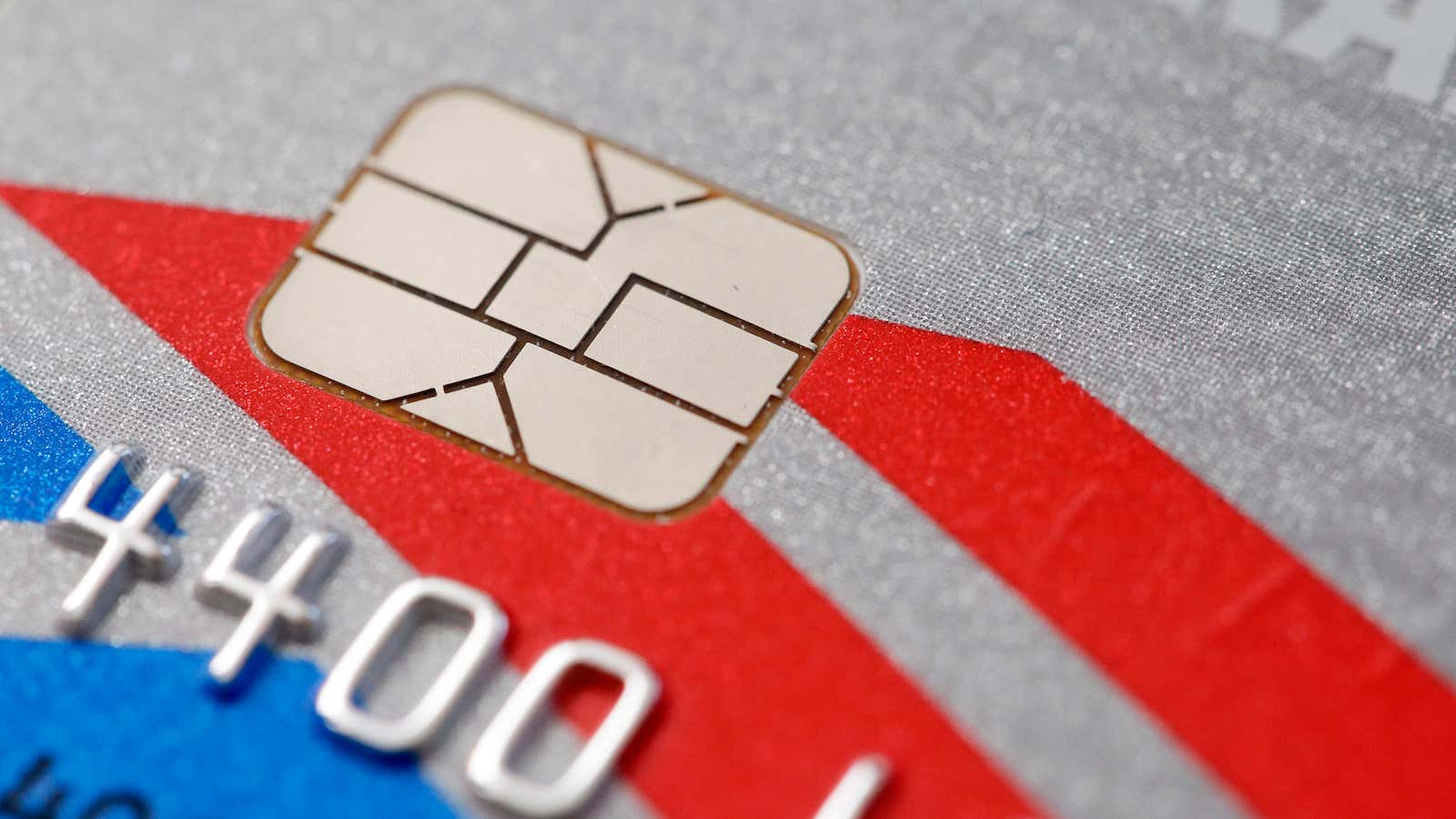The shift to chip cards has been something of an ordeal for US consumers. They’re slower than magnetic stripe cards when checking out at the register, and generally cumbersome to use. And their greatest attribute—increased security for in-person transactions—is having an unwelcome knock-on effect: they’re spurring an increase in online fraud, which could accelerate in the coming years.
Juniper Research, a financial services research firm, said in a recent report that it expects global online fraud to skyrocket to $25 billion in 2020, thanks in part to the transition to chip cards. Online fraud only amounted to $2.9 billion in 2013, according to the Aite Group,
Some of this is simply a function of more money being spent online. Criminals will always follow the money, after all. But because chip cards are more secure than magnetic stripe cards, fraudsters and hackers focus more on online fraud after a country shifts to the standard. Other countries, including the Canada, and Australia, have experienced dramatic jumps in e-commerce fraud after moving to chip cards. So has the UK, which moved to chip cards in 2005.
ACI Worldwide, a payments firm, said in a January 2016 report that e-commerce fraud went up in 2015 versus the previous year. In 2015, one out of every 67 transactions was a fraud attempt, compared to one out of every 72 transactions in 2014, representing a 7.1% increase. The 2015 holiday season also saw an increase of 8% in online fraud attacks over the previous season, said ACI.
On the bright side, there are alternatives, like Apple Pay and Visa Checkout, that could solve the problem on desktops and mobile apps by turning your credit card number into a random code that’s harder to use if hacked. (Apple is also exploring adding Apple Pay to its Safari web browser.) But, in the meantime, online fraud may get a lot worse before it gets better.
